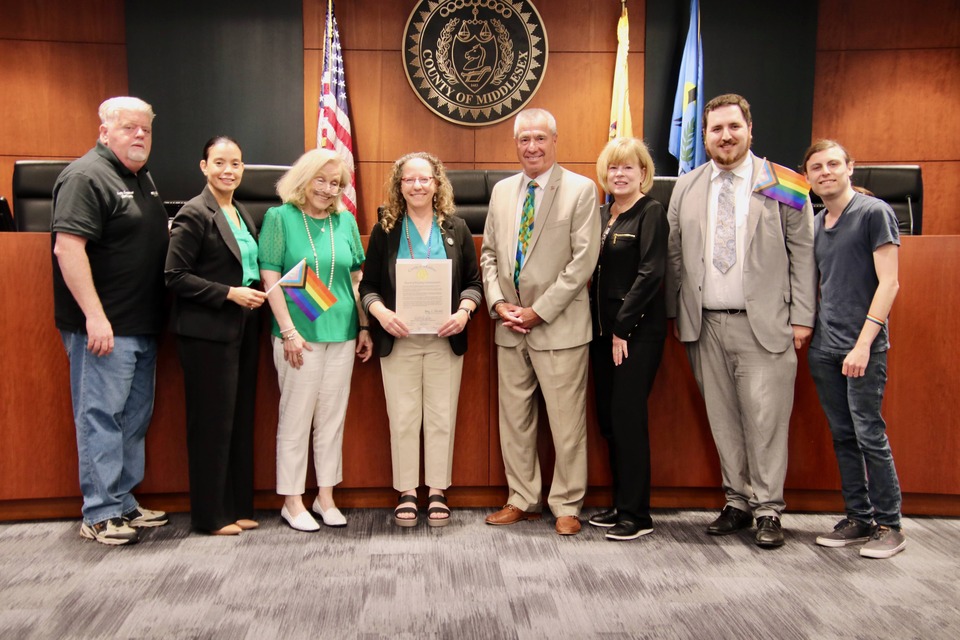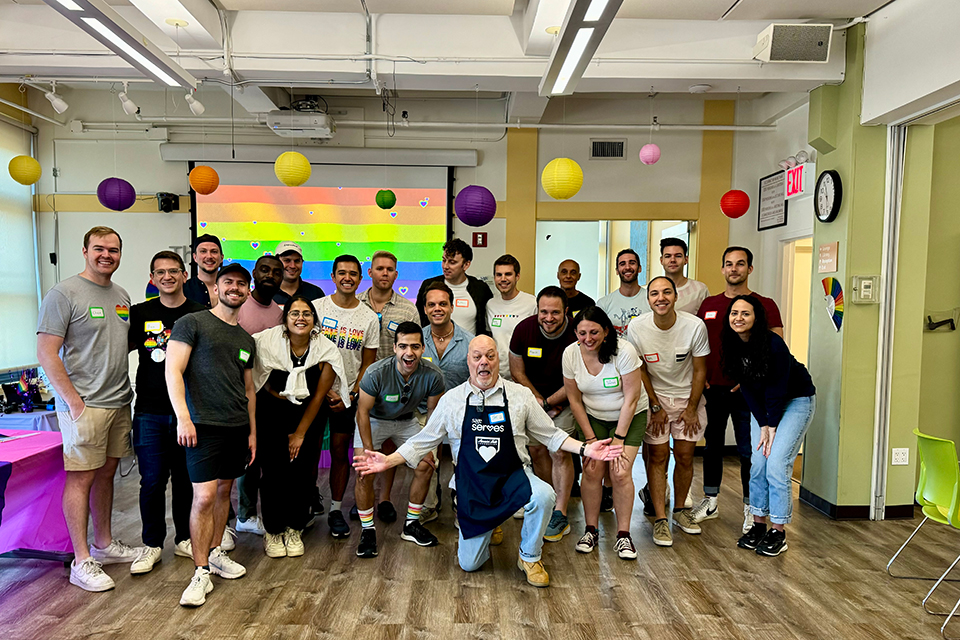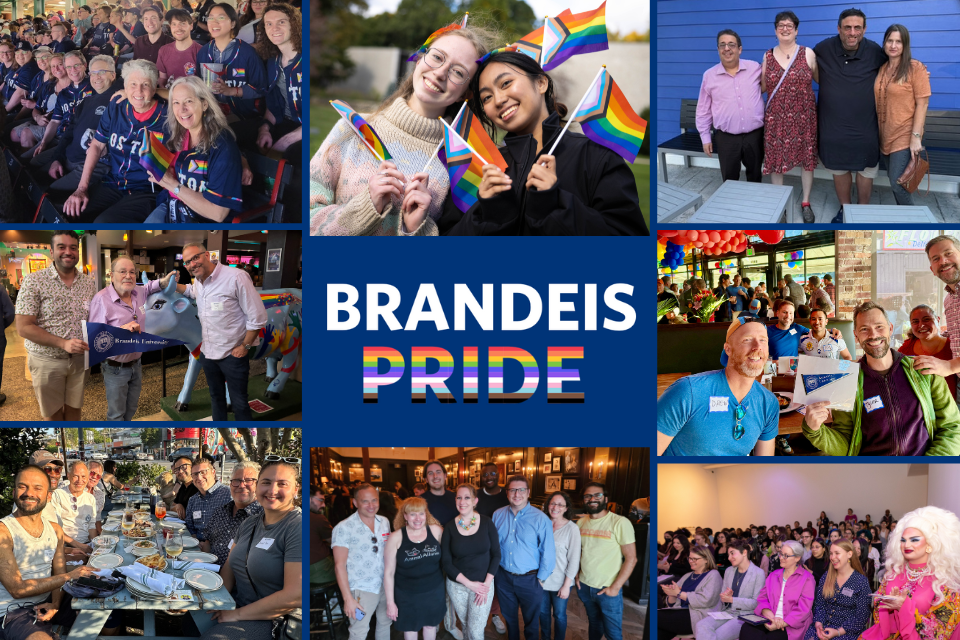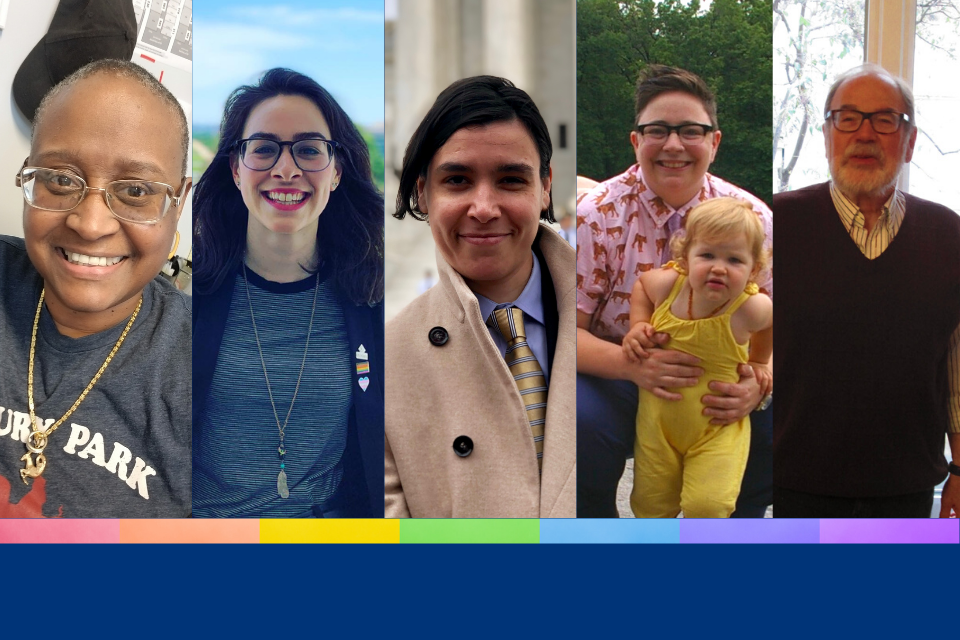Brandeis Alumni, Family and Friends
Randi Sumner ’91 on Pride Month and Politics
In recognition of Pride Month, the chair of Middlesex County, New Jersey’s LGBTQIA+ Community Caucus shares why representation is so important.

Randi Sumner ’91 believes deeply in the practice of thinking globally by acting locally. That’s why, as a member of the municipal democratic organization in Middlesex County, New Jersey, she’s especially proud to serve as Chair of the organization’s LGBTQIA+ Community Caucus.
To celebrate Pride Month, Sumner shared what Pride means to her, as well as why it’s so important for LGBTQIA+ people to get involved with politics, at both the local and national level.
What does Pride Month mean to you?
Given the current state of our country and the world regarding LGBTQIA+ issues, I am hyper-aware of what it means to live my life authentically on a daily basis. Pride is about coming together to recognize and celebrate all that we have to offer each other, our communities, and the world. It is also about recognizing and celebrating the vast diversity inside the queer community, spanning all races, ethnicities, religions, socio-economic classes, and geographies. We have this identity that bonds us across these seeming differences. Pride is about building and strengthening that connection.
Why is LGBTQIA+ representation so important in politics?
For me, the more LGBTQIA+ people that are in the room while ideas are being discussed, the more likely it is that our lived experiences will be accounted for in decision making. Second, there’s a lot of research proving that diverse teams in business produce more effective and innovative outputs. The same is just as true in civic leadership as it is in the corporate boardroom. Lastly, the more we experience something, the more normative that experience becomes. This applies to the queer community just as it does any social group with limited representation in the public sphere.
How did your time at Brandeis shape your relationship to the LGBTQIA+ community?
One of the main reasons I chose Brandeis was because of the cultural attitude of inclusion and social/political activism that is in the DNA of the institution and its history. I remember the phrase, “The personal is political,” often coming up in our discourse. I was a sociology major, and sociology professor Irving Zola was a strong influence on me. He used to say that it didn’t matter what you studied so much as how you used your studies to develop a strong foundation upon which to focus your work and thinking. To this day, the lens through which I view the world and make decisions about family, work, community engagement, and political action is absolutely influenced by my critical studies on human interaction and social constructs at Brandeis.
What would you say to a young person in the LGBTQIA+ community who’s interested in pursuing a political career?
We need you. There are countless ways to have an impact outside of elected leadership. The sad reality is that our community, like so many other marginalized groups, is under constant attack. The bottom line is that we need more young people in politics sharing their experiences and voices.









